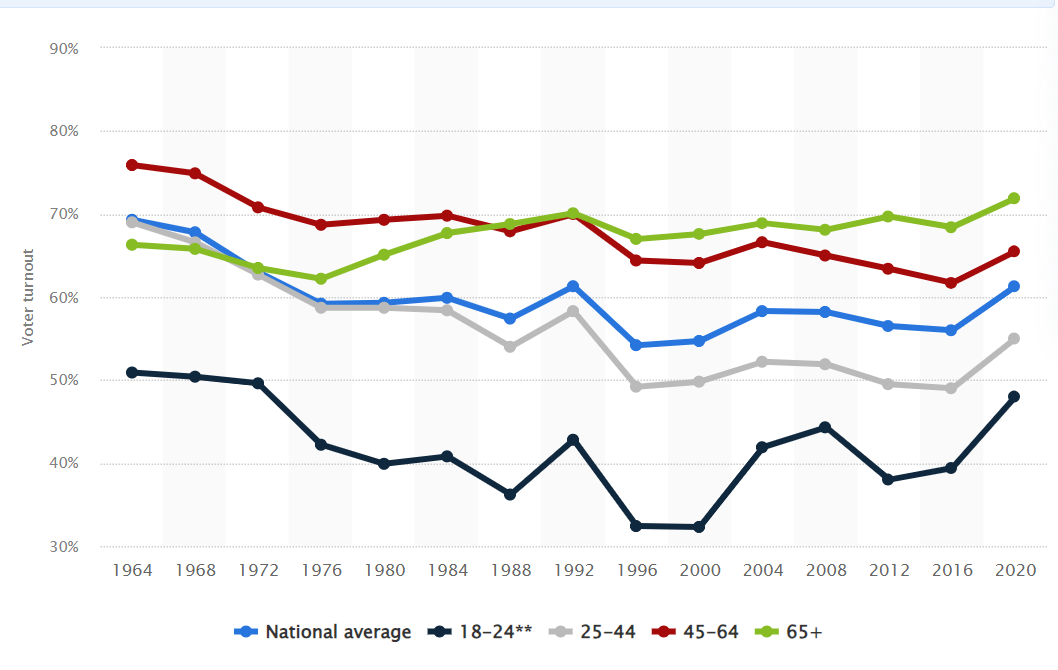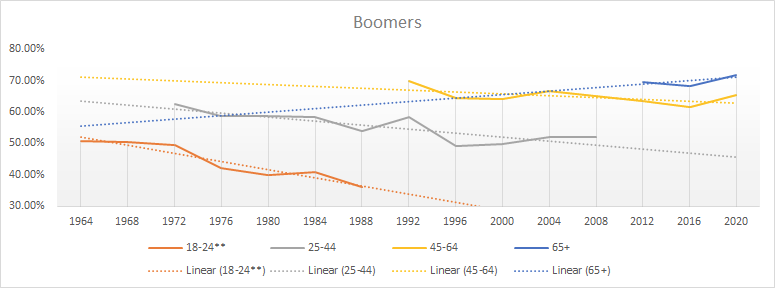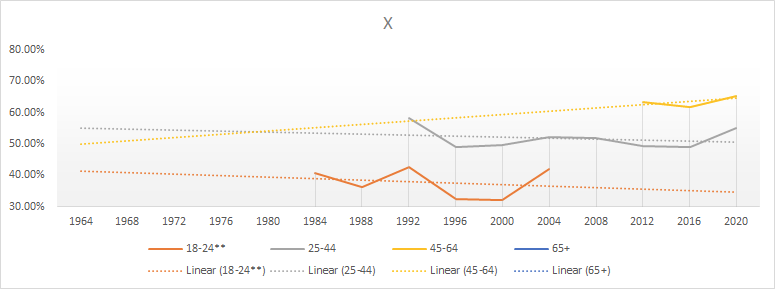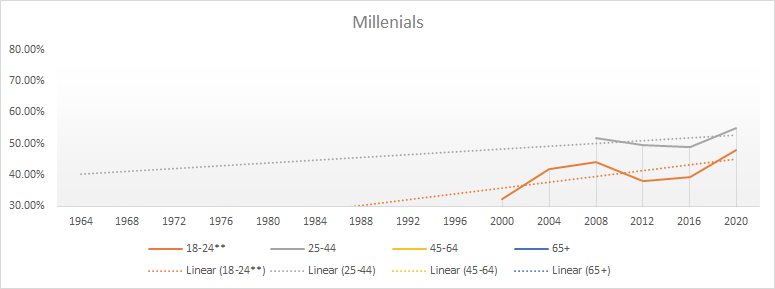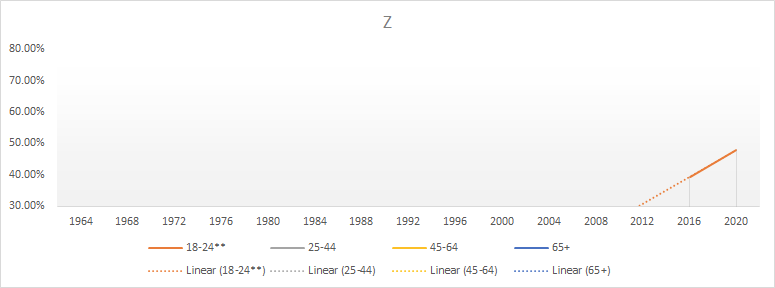When I was growing up, my generation (gen X) was rather apathetic in our youth. Politics was the boring stuff done up there with little bearing on what's happening down here. It was the realm of adults whose job it was to run society. We had better things to do like rock out to the latest music, rebel against our parents, and fit in with our peers. Discussing politics in most social situations was considered nerdy and weird: you were supposed to shut up and drink your beer. Unlike other countries, part of being American then was the luxury of not to caring about your government.
After the election of George W Bush in 2000, I noticed a huge change. All of a sudden, the music stopped and the harsh lights were turned on. The cops shut down the party and everyone was sent home. The booming economy was over. For the first time, we started discussing politics openly and sorting each other out based on political ideology. If you didn't have one, then you better find one. The old "I don't get into politics" made you a nerd and uncool. We discovered politics had real consequences in our lives. There was the ongoing threat of being drafted, economic uncertainty, and hyper-vigilance after the shock of 9/11.
Ever since then, I've notice younger generations are even more politically minded. The election of Obama, the first black president followed by Trump, a ubiquitous American pop culture icon, increased political interest to the same level as what happened on last night's nationally popular sitcom episode. Washington now has more in common with Hollywood, an endless source of reality-based entertainment.
While I don't have any statistics to support it, it appears Millennials and Generation Z are more politically conscious than previous American generations. Is this a misperception on my part? To be clear, I define consciousness as different from participation. Meaning even if they do or don't participate in the political process, i.e. voting and running for office, politics is as interesting to them as the latest fashion, latest hit song, etc.
